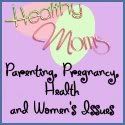BORROWED FROM;
HEALTH NEWS.PPD
How Depressing: It's a Boy
Study examines whether a child's gender factors into postpartum depression
By Lisa Farino for MSN Health & Fitness
Depression is one of the most common postpartum medical problems that new moms face. New research suggests that the risk is even higher for those who give birth to boys.
Most moms will readily admit that rambunctious little boys are a bit more challenging to parent than little girls, who are generally quieter and less physically active. But the impacts of gender on parenting don’t necessarily start once the little ones start toddling.
New research out of France found that women who gave birth to boys were significantly more likely to suffer from severe postpartum depression than women who gave birth to girls. The findings weren't limited to severe depression: Women who gave birth to boys were also much more likely to report a lower quality of life than women who gave birth to girls.
This study, published in the Journal of Clinical Nursing, is the first to examine the impact of infant gender on postpartum depression for women in a Western country. Previous studies in China, Turkey, and India, found that rates of postpartum depression were higher among women who had given birth to girls. Researchers suspect the findings reflect the strong cultural preference for boys over girls in these countries.
But not everyone is convinced that the study really sheds new light on postpartum depression, which is estimated to afflict roughly 10% of new mothers in the United States. For starters, the research was conducted only on French women, whose social and cultural reality may be significantly different from that of women in the United States.
More importantly, it’s possible that the findings are just a statistical quirk since the study was conducted on a very small group of women.
“We’re talking about a very tiny sample size,” says Dr. Gail Robinson, a psychiatry professor at the University of Toronto’s Department of Obstetrics and Gynecology. “There were only 17 mothers with severe depression and 13 had boys. A study with such small numbers doesn’t prove anything.”
Why Mothers of Boys Might Be More Depressed
The French research team didn't set out to determine why women giving birth to boys might be more likely to suffer from postpartum depression. In fact, when they started the study, there was no reason to believe that the baby’s gender would influence maternal depression, since there’s no cultural bias in France for babies of one gender over the other.
Once they noticed a trend, however, the researchers did speculate about why mothers of infant boys might be more depressed.
Are infant boys more difficult to care for than girls?
Lead researcher Claude de Tychey, professor of clinical Psychology at Universite Nancy, cites studies showing that infant boys are “more irritable and more difficult to soothe” than infant girls.
Robinson agrees with this assessment. "At birth, girls are more neurologically developed than boys,” she says. “This can make it trickier to care for an infant boy—they're not as settled and are more likely to keep you up at night."
Do women prefer daughters to sons?
No one asked these women what gender of baby they had hoped for, information that would have been useful in teasing out the reasons for the study’s findings, as well as perhaps more clearly identifying who’s at risk.
Nonetheless, de Tychey speculates that women (at least in France) may prefer daughters to sons.
One of his theories: the growing narcissism of the modern world is leading new moms to desire mini-me’s (that is, girls) instead of boys. Therefore, when a woman doesn’t get the gender of child she desired, she is more likely to suffer from decreased quality of life or severe depression.
De Tychey’s psychoanalysis may strike Americans as a bit far-fetched. But you don't need to buy into the psychology of narcissism to suspect that women in Western countries (especially American women) may actually have a preference for girls. Take overseas adoptions by Americans, a process that’s typically driven by women. Overwhelmingly, adoption agencies report that adoptive parents declare a preference for a female child.
=======
How to Spot Postpartum Depression
Whether your baby is a boy or a girl, postpartum depression is a common problem for new moms—and it’s a serious condition that requires medical attention. Unfortunately, it can be a bit tricky to recognize and diagnose. Some typical symptoms of depression—like trouble sleeping through the night, difficulty concentrating and loss of interest in previously enjoyed activities—can simply seem like symptoms of being a new mom.
Here are some key warning signs that you may have postpartum depression:
High levels of anxiety
Failure to bond with the child
Feeling guilty about not being a good mother, wishing you hadn't had the child or being afraid that you will hurt the child
Not sleeping well, even when there is someone else looking after the baby
The lack of any happy moments amidst the chaos of new motherhood. Being a mom to a new infant is often a tiring and frustrating task, says Robinson, but there should be times when you feel better. “When they’ve gotten some sleep and friends are visiting and the baby is bathed and cooing, moms should feel good,” she says. “If a woman feels crummy even when everything else is going well, there’s a problem.”
Unfortunately, some doctors will simply write off a woman’s symptoms as part of being a new mother, says Dr. Catherine Birndorf, Assistant Professor of Psychiatry and Obstetrics & Gynecology at The New York Presbyterian Hospital. “If in your gut you know what you’re feeling is not right, make sure you find someone who listens to you.”
If you suspect you have postpartum depression and are having difficulty finding the appropriate medical professional, Birndorf recommends contacting Postpartum Support International. They can help put women in touch with local medical professionals who are experienced in treating postpartum depression.
Treating Postpartum Depression
Mild cases of postpartum depression can be treated with cognitive behavioral therapy, says Robinson. Many women can benefit from getting additional help—someone to assist with chores around the house and/or someone to watch the child while she gets some much-needed sleep.
For more serious cases or for women who don't respond to these treatments, antidepressants can be an important part of healing.
“A lot of women say they don’t want to seek help because they don’t want to stop breastfeeding,” says Birndorf. “But it’s not true that you can’t take medication when you’re breastfeeding. Nothing is absolutely safe, but there are certainly antidepressants that are more safe than others and are less detectable in breast milk.”
According to Robinson, the risks can be even further minimized with some simple changes. First, a woman can take a pill right after she breast-feeds, giving it time to work through her system before the next time she breast-feeds. Second, she can express her hind milk before each breast-feeding.
More importantly, Robinson stresses that failure to treat postpartum depression poses very real risks to both mothers and babies. “Mothers who don't get treatment are less likely to eat properly and less likely to bond with their baby. They are also more likely to neglect the baby and abuse
==========================================
Health Tip: Postpartum Depression
What may be behind unhappy feelings after giving birth
-- Diana Kohnle
(HealthDay News) - Depression that follows the birth of a baby is common, as new moms are overwhelmed by the changes in their bodies and routines.
The U.S. Department of Health and Human Services offers this list of reasons for why postpartum depression affects some new mothers:
New moms can suffer from lack of sleep after the baby's birth, which can lead to fatigue, stress and depression.
New moms can feel overwhelmed by all of the new things to do, and by other changes in their lives. They may even feel unsure of their parenting skills.
New moms may set unrealistic expectations for themselves.
New moms have less time for themselves, with their partners, and less time to do what they want.
content by:
==========================================
BORROWED FROM;;;;
CLICK HERE FOR MORE
When To Call a Doctor WITH POST PARTUM DEPRESSION
From Healthwise
Call 911 or other emergency services if you think you cannot keep from harming yourself, your baby, or another person. You can also call the national suicide hotline, National Hopeline Network, at 1-800-784-2433 or the National Child Abuse Hotline at 1-800-422-4453.
Call your health professional immediately if:
You are not having symptoms of postpartum depression (listed below), but you have hallucinations involving smell, touch, hearing, or sight or have thoughts that may not be based in reality (delusions). Examples of delusions are fears that someone is watching you, stealing from you, or reading your mind.
You have severe symptoms of postpartum depression.
You have any symptoms of depression and have had depression or postpartum depression before.
You have had any symptoms of depression for longer than 2 weeks. You don't necessarily have all possible symptoms when you have depression. Call sooner rather than later, before your condition gets worse.
Symptoms of postpartum depression include:
Depressed mood—tearfulness, hopelessness, and feeling empty inside, with or without severe anxiety.
Loss of pleasure in either all or almost all of your daily activities.
Appetite and weight change—usually a drop in appetite and weight, but sometimes the opposite.
Sleep problems—usually trouble with sleeping, even when your baby is sleeping.
Noticeable change in how you walk and talk—usually restlessness, but sometimes sluggishness.
Extreme fatigue or loss of energy.
Feelings of worthlessness or guilt, with no reasonable cause.
Difficulty concentrating and making decisions.
Thoughts about death or suicide. Some women with PPD have fleeting, frightening thoughts of harming their babies: these tend to be fearful thoughts, rather than urges to harm.
Watchful Waiting
If your symptoms are new and not severe, you can wait up to 2 weeks to see if they will go away. Otherwise, call your doctor as soon as you notice symptoms. The earlier you are treated, the more quickly you will recover, and the less your baby's development will be affected by your condition.5
Who To See
Your obstetrician may be the first health professional to note and diagnose PPD. This is one of many reasons why it's important to have a medical check 3 to 6 weeks after childbirth. Treatment for PPD ideally involves both medication and some form of professional counseling. To effectively treat depression, it's important that you and your counselor have a comfortable relationship.
Diagnosis and medication management of postpartum depression can be provided by a:
General practitioner.
Family doctor.
Psychiatrist.
Physician assistant.
Nurse practitioner.
Professional counseling can be provided by a:
Psychologist.
Social worker.
Licensed professional counselor.
Psychiatrist (all prescribe medication; many also provide counseling).
Subscribe to:
Post Comments (Atom)

























































No comments:
Post a Comment